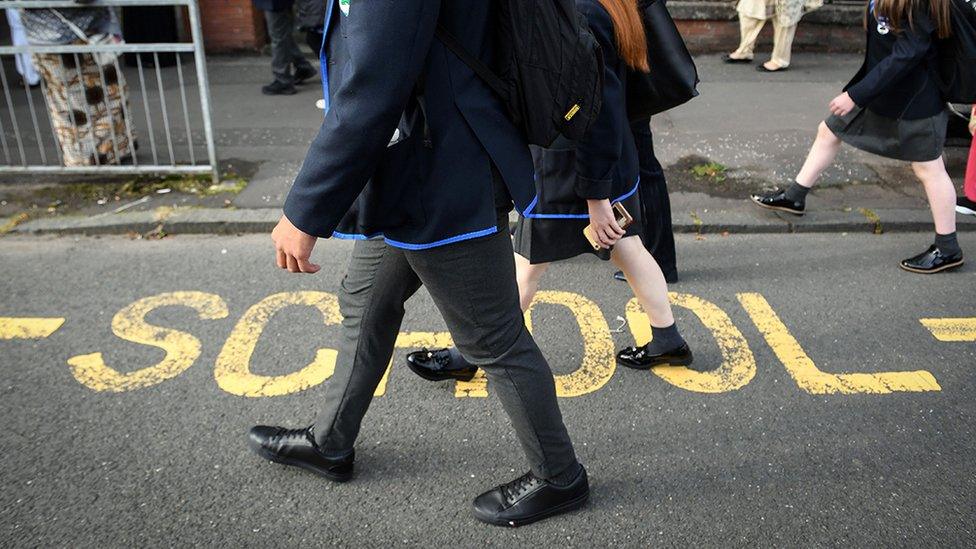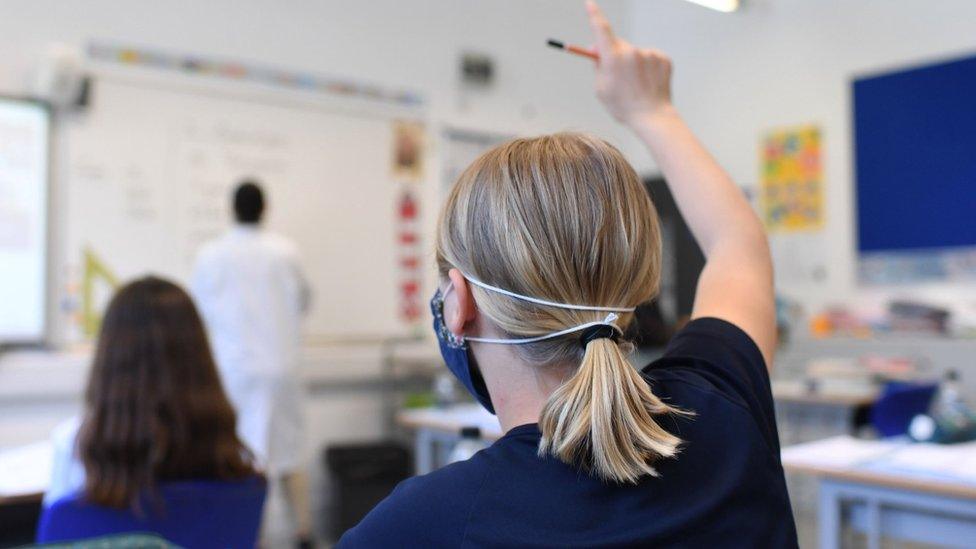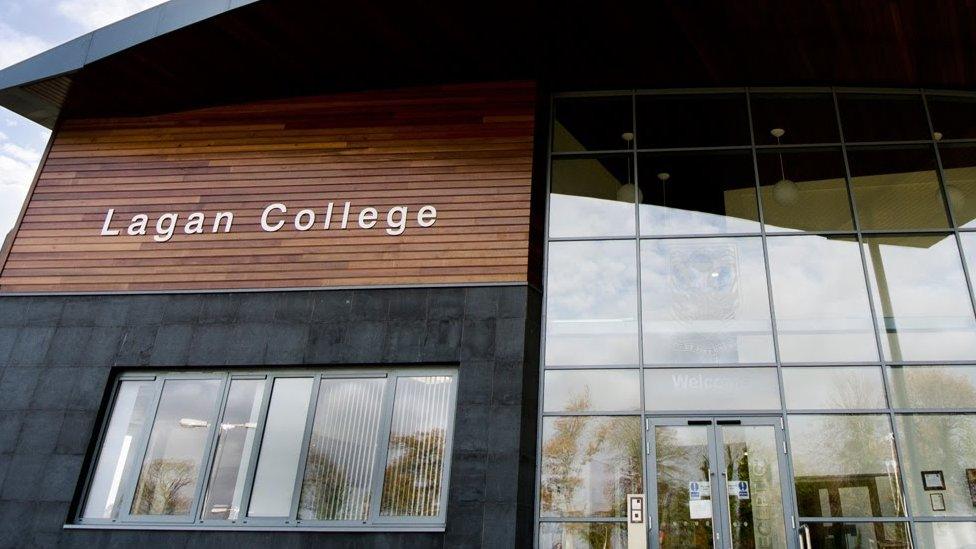Integrated education: Stormont passes bill despite DUP opposition
- Published

The integrated education bill has passed through Stormont
A new law requiring the Department of Education (DE) to give more "support" to integrated education has been passed by assembly members.
The new law is the result of a private members bill brought by the Alliance assembly member Kellie Armstrong.
A DUP move to block the legislation using a petition of concern failed as it did not gain enough support.
The new law was supported by 49 assembly members, with 38 voting against it and one abstaining.
It means that the Department of Education has to increase the number of integrated school places and set targets for the number of children being educated in them.
About 7% of pupils in Northern Ireland are educated currently in just under 70 formally integrated schools, which aim to mix pupils from Protestant, Catholic and other backgrounds.
Kellie Armstrong MLA said her integrated education bill would not undermine any sector.
However, some non-integrated schools also have a mix of pupils from different religious backgrounds as well as those who are not religious.
The commitments contained in the bill led some schools, education bodies and church representatives to claim the legislation would "elevate integrated schools" above other types of school.
But the new law also received strong support from some schools and organisations and the Northern Ireland Commissioner for Children, Koulla Yiasouma.
What happened in the assembly chamber?
Assembly members from the Ulster Unionist Party did not support the bill but did not back the petition of concern.
A petition of concern to block legislation has to be supported by 30 assembly members.
Speaking during the debate, the Ulster Unionist leader Doug Beattie said his party would not "abuse a mechanism that we put in (to the Good Friday Agreement) in 1998".
"Signing a petition of concern on this issue would be an abuse of that mechanism," he added.

Analysis: Department's support for integrated sector now key
In some parts of Northern Ireland, there are places in integrated schools and if you're a parent who wants to send their child to a formally integrated school, you can.
In other parts, that's much harder.
Not a lot will change immediately, but with the passing of this bill, in time, some of that demand for more integrated school places should be met.
Those against the bill worry the Department of Education will have to spend more money providing those places, and less money on the controlled and maintained sectors.
It really depends on the support, and that's the key in this bill, the department has to give integrated education.
This bill commits the department to bring forward an action plan and draw up targets.
That won't happen overnight and will be the responsibility of the next education minister.

Opening the debate earlier, Ms Armstrong said that "more young people growing up together and being educated together will move Northern Ireland forward".
But DUP assembly member Diane Dodds said the bill would leave a "terrible legacy" for children while the TUV leader Jim Allister said it created "supremacy for one sector over another".
Ms Dodds also criticised assembly members opposed to the bill for not having the "backbone" to stop it and said they were "scared" of political opponents.
The UUP's Robbie Butler said there was "a lack of fairness and equality" in the bill and that it would "elevate one sector above another".
However, Sinn Fein assembly member Pat Sheehan called Mr Allister's claims of supremacy "arrant nonsense".
The SDLP's Daniel McCrossan said there were a number of "issues with the bill" but it was in "much better shape" following a range of changes and amendments during the consideration process.
Closing the debate, Ms Armstrong said that since she first proposed the bill she had faced "allegations of being sectarian, threatened to be excommunicated from the church by some principals".
"I have had people ask me not to return to go to Mass, I've had local people who have said to me that they would rather see me out of my house and out of the area all because of the misinformation that was shared about this bill."
What does the bill say?
The Integrated Education Bill commits the Department of Education to a duty to actively "support" integrated education.
It means the department must provide "sufficient places in integrated schools to aim to meet the demand for integrated education within the context of area planning and the overall sustainability of the school estate".

Just under 70 schools in Northern Ireland are formally integrated
Education bodies must also "consider integrated education when planning for the establishment of a new school".
The bill could also mean an increase in the budget for some integrated schools as the department must produce an integrated education strategy to "include provision for resources (including personnel) to encourage, facilitate and support integrated education".
The department must also produce an action plan and "quantify funding commitments and identify respective resources made available for the support for and provision of integrated education".
Those additional resources could include "the establishment of new integrated schools, the expansion of existing integrated schools and the transformation of existing schools into integrated schools".
Related topics
- Published8 March 2022

- Published17 February 2022

- Published11 November 2021
